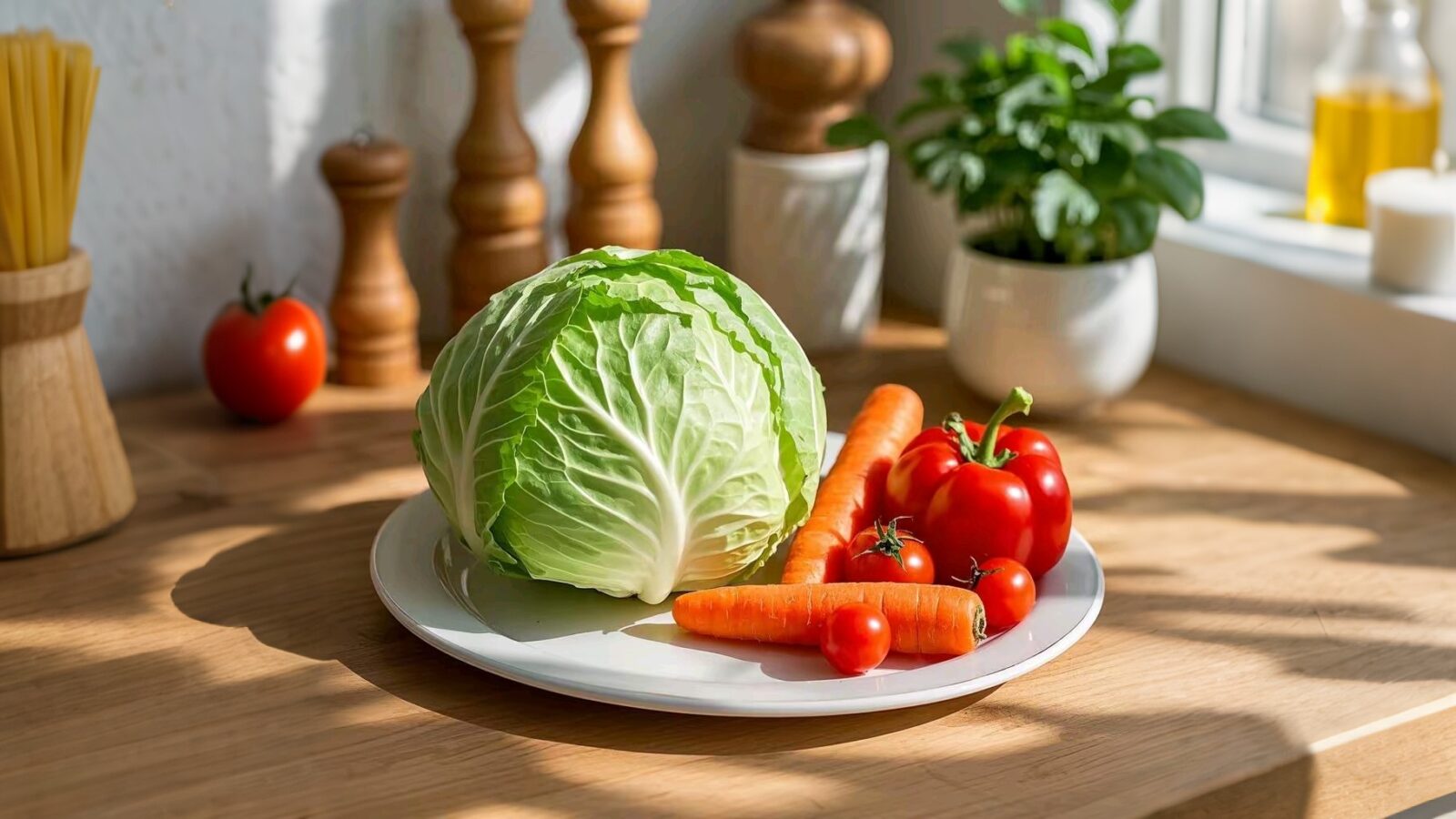
Date: 08/09/2025 08/10/2025
Location: Star Ocean Meditation Center
Teacher: Otto Huang
Buddhist Diet and Regimen
Cabbage
Cabbage: A Nutrient-Rich Vegetable Packed with Vitamins and Fiber
1. What is Cabbage?
Cabbage (Brassica oleracea var. capitata) is a popular cruciferous vegetable with tightly packed leaves forming a round or oval head. It has a crisp texture and mildly sweet flavor, making it a versatile ingredient for raw salads, stir-fries, soups, and fermented dishes.
2. Nutritional Value of Cabbage
Cabbage is a low-calorie, high-nutrient vegetable packed with essential vitamins, minerals, and plant compounds. Key nutrients include:
1.Vitamin C: Strengthens the immune system, supports collagen production, and promotes skin health.
2.Dietary Fiber: Aids digestion and supports gut health.
3.Vitamin K: Plays a crucial role in bone health and blood clotting.
4.Folate: Supports cell growth and repair, making it beneficial for pregnant women.
5.Antioxidants (such as Glucosinolates): Help protect cells from oxidative stress and inflammation.
3. Health Benefits of Cabbage
1.Boosts Immunity: High vitamin C and antioxidants help strengthen the body’s defense system.
2.Aids Digestive Health: Rich in fiber, supporting gut bacteria and reducing digestive issues.
3.Supports Heart Health: Low in calories and high in potassium, helping regulate blood pressure.
4.Promotes Bone Health: Vitamin K enhances calcium absorption and strengthens bones.
5.Provides Antioxidant and Anti-Inflammatory Benefits: Plant compounds reduce oxidative damage and inflammation.
4. Best Ways to Eat Cabbage
1.Raw in Salads: Shredded and mixed with nuts, olive oil, or a light dressing for a crunchy dish.
2.Stir-Fried Cabbage: Lightly cooked to retain its crisp texture and natural sweetness.
3.Braised Cabbage: Simmered with legumes and mushrooms for a hearty meal.
4.Cabbage Soup: Combined with carrots and tofu for a light, nutritious broth.
5.Fermented Cabbage: Made into sauerkraut or pickled cabbage to enhance gut health and add flavor.
5. Interesting Facts About Cabbage
How to Choose the Best Cabbage?
Look for firm, dense heads with fresh, vibrant green leaves.
Should Cabbage Be Blanched?
Some dishes benefit from blanching to reduce oxalates and retain texture.
Can Cabbage Be Eaten Daily?
Yes, moderate daily consumption provides essential vitamins and minerals for overall health.
Conclusion
Cabbage is a nutrient-dense, low-calorie vegetable rich in vitamin C, fiber, vitamin K, and antioxidants. Regular consumption supports immunity, digestion, heart health, and bone strength. Whether eaten raw, stir-fried, simmered in soups, or fermented, cabbage is a versatile and healthy addition to any diet.

